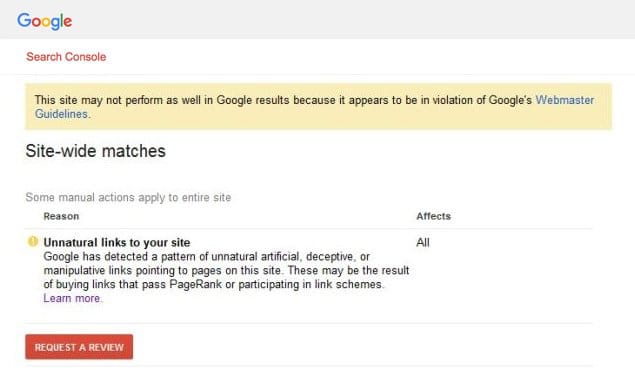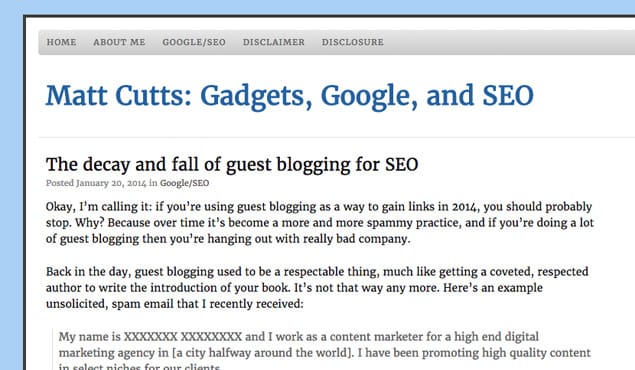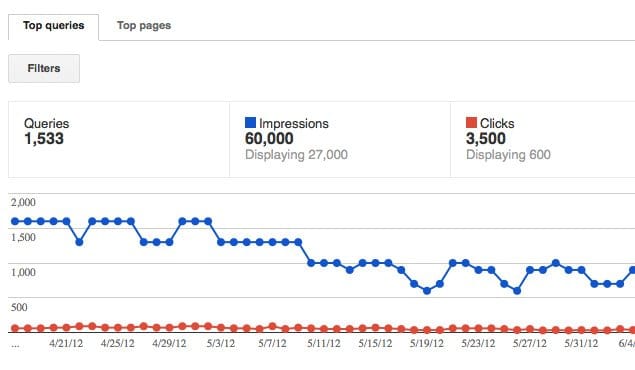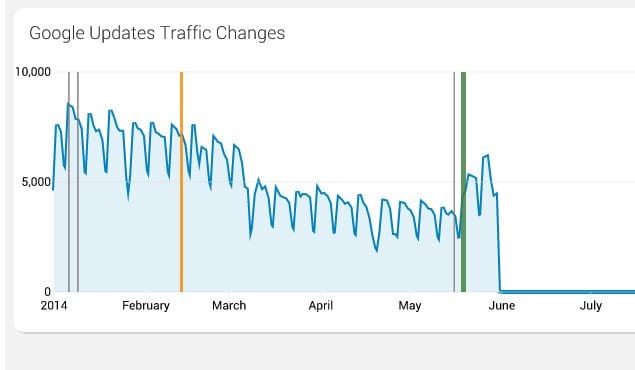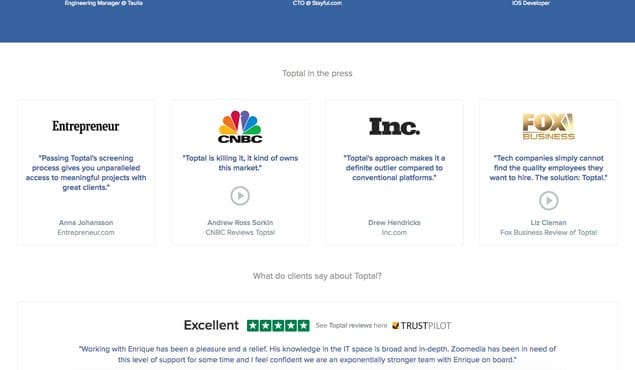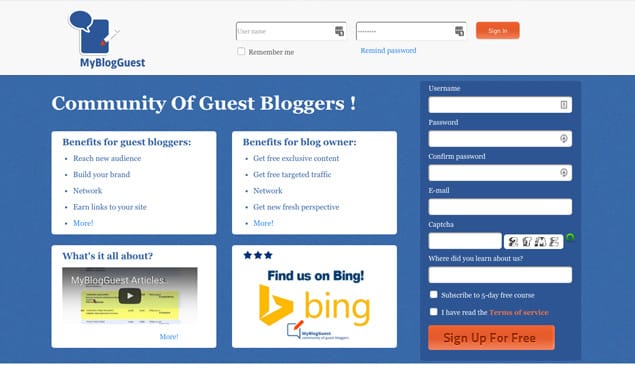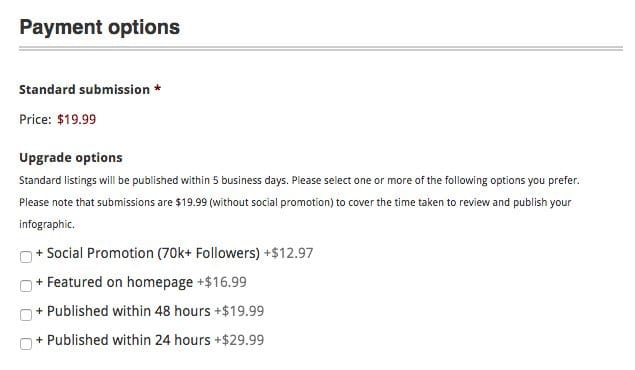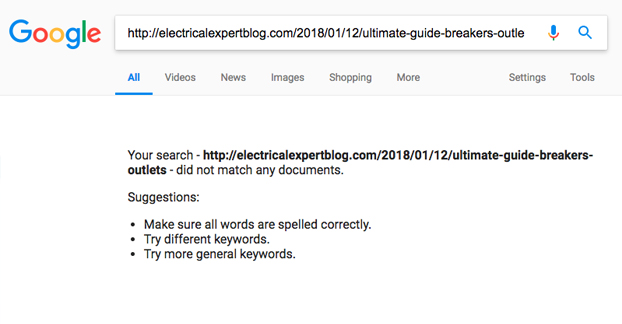The world of link building, also known as backlinks, is a tricky one. On the one hand link building serves as the cornerstone of Google’s search algorithm, and therefore it’s the primary way humans find information online. On the other, it’s also the reason most websites get the dreaded Google penalty.
It makes sense that the most important aspect of Google’s search empire is also the most heavily regulated. If link building were to get out of hand, Google’s search results would be pure garbage, and people would stop using it. (Can we just imagine that for a second?)
Google obviously doesn’t that want (it’s bad for business), but the company also stands on a higher moral platform. Google’s aim is to provide the internet-connected citizen with the best results to a query in the least amount of time. It is a service, and a noble one.
Link Building Penalization Conceptualized
Long ago Google established that link building was the most effective way to get the best search. It conceptualized the process as a peer review: the more links that point to your website from other legitimate websites, the more your website must be legitimate.
In the landscape of search engine optimization (SEO) link building can easily become a feedback loop that promotes websites without any good information, if those websites have the money or hacking skills to make it happen.
Just get your website linked by high-ranking authoritative sites, or hundreds of thousands of smaller sites, and voila, you’re on the first page of Google. Of course, you have to do that following the webmaster guidelines. If you don’t, you’ll get hit with a penalty. The tricky part is that those guidelines continue to change.
Guest Blogging for Link Building
One of the most notorious link building methods is guest blogging, also called guest posting. It’s notorious because it couches potentially unnatural links in a very common and well-accepted form of content: an article.
In 2014 Matt Cutts, the head of Google’s web spam team, declared that guest posting was dead. He was referring to an impending algorithm update from Google which would further increase the company’s policy against backlinks in guest post.
It was an inflammatory post, one that got the attention of the entire internet marketing field. There are two things to note here:
- While the post was incendiary, it was later explained and somewhat diminished in its intensity. He meant that guest posting just for the sake of link building was dead, while guest posting for community and brand development would continue happily. This is true, but the key here is that guest posting for community and brand development also includes backlinks that are legitimate, so it’s still an SEO process to some degree.
- The statement got the attention of the “internet marketing field,” as I said above. You see, some people only guest post because it helps to build their outreach and community, and they like to think of the backlink as a nice perk. Those people are quaint, but don’t really understand the power of the backlink. Internet marketers do, and were responsible for Google’s brutal enforcement of policy. Internet marketers built entire platforms on thousands of guest posts on thousands of sites with thousands of backlinks, none of which were helpful to readers, but rather to themselves. Dipping a hand in the SEO honey-pot got everyone in trouble, and now we’re in a world where there are penalties.
The direct answer to the question “Can guest blogging for link building get you penalized?” is “yes,” definitely. I know it’s not what you want to hear, because nobody wants a Google penalty. The reality is that you can still guest post, you just have to do it carefully.
Before we get into those rules, I want to take a second to make a distinction between a guest blogger and the site that hosts the guest blog.
Guest Bloggers
Most of you in the guest blogging realm actually fit into both of these categories — you’re gearing up to write guest blogs for other websites, and you have your own website with guest blog posts. That’s the core model of the give and take of this whole process.
In regards to getting penalized for guest blogging, it’s not necessarily you, the author of said guest post, who will get a red flag from Google. The penalty itself could be issued to the website owner.
It is the website owner’s job to manage its posts, and if your post in some way violates Google’s backlink policies, it will also be their fault for publishing said post.
While you may think this makes you scot-free, it really doesn’t. The last thing you want is to be the reason someone gets a Google penalty. You’ll never write for them again and the post will probably be taken down.
While the penalty won’t be issued to you for that specific post, there is a ripple effect to your name and backlinks being associated with a penalty. The hard data on this is murky, so I’ll continue with this statement:
While Google doesn’t outright state that it keeps track of an individual author’s credibility on the web, I’m pretty sure it does. Google Authorship is now defunct, but Author Rank, an unofficial process by which more legitimate authors are given priority in search results, does exist in some measure.
Blogs That Have Guest Posts
As you can maybe guess, if you own the blog that has a post riddled with backlink spam you will be the one to get hit with a penalty. This means you haven’t done your due-diligence when it comes to vetting article backlinks.
In short, you need to do this. If you are in the habit of accepting guest blogs but don’t check every single link included in pitched articles, you are not only in danger of getting a Google penalty, but you’re doing a serious disservice to your reader.
The penalty you’ll receive will either be a manual penalty, or an algorithmic penalty.
Manual Penalty
With a manual penalty you will be alerted via email and on your website, and the penalty has the potential to be pretty severe.
One case that was widely criticized back when Google enacted all of the new backlink measures, in 2014, was that of Doc Sheldon. His site was manually made to “not perform as well in Google searches” due to a single guest post he had on his website, which was published in 2011. The penalty ended up being reduced a couple days later, but if you searched for Sheldon’s website in those days when it was penalized, it simply wouldn’t show up.
That’s the power of a manual penalty by Google, also know as a digital whack-a-mole (not really, I made that up).
You can submit a request for reconsideration to Google for a manual penalty, but you’ll have to make a good case.
Algorithmic Penalty
An algorithmic penalty is much less obvious and intense, but equally devastating. If Google’s algorithm determines that you are using backlinks in a spammy way it will simply decrease your visibility in search, and never let you know.
This is how all of it works — your penalty here is in the form of lower rankings. You can have a bunch of amazing content and rank on the first page of Google, then start to publish spammy guest posts and all of your content will go down in the search.
You have to check your page views and other statistics to determine if you’re still ranking well with Google’s algorithms, which are updated frequently. Obviously, if you change your structure to fit their newest standards, you will start to rank better.
Following Google’s Rules
I can’t plainly state all of Google’s rules regarding backlinks here because, frankly, it would take too long.
The part of Google’s rules that you need to understand in regards to backlinks that specifically deal with guest blogging can be broken down in four major ways. There are more, of course, but these are the ones that will likely apply to you.
1. Use Relevant Backlinks
This is the cornerstone of all backlink ideology, and therefore is the most important (and absolutely necessary) rule for guest bloggers. A relevant backlink is one that provides useful information to your reader in the context of your article.
If you are writing about Crossfit workouts on somebody’s fitness blog and mention “good diets for Crossfit,” but don’t take the time to get into those diets, consider using a backlink. You should link to another article that is about “good diets for Crossfit.” The article should be so good that if any reader were to go there, they would come away with a clear idea of what to eat (and not eat) when using Crossfit as a workout plan.
That would be a relevant backlink.
Instead, say you decide to include a backlink to a brand of protein powder that can be purchased on Amazon on the same term: “good diets for Crossfit.” Is the protein powder a description of a good diet? Is it informative to the reader? Or is it rather a passive suggestion for your reader to ingest protein powder without any explanation of why?
To take this further, many people will think: “Oh! I should create an affiliate account with Amazon, then include that affiliate link in my next article.” So, the protein powder link, which is already not very relevant or helpful, becomes a paid advertisement for you, the guest author.
This won’t fly with the blog you’re writing for, unless they’re naive, or in on the backlink scam. This is also not a relevant backlink, and precisely what Google penalizes people for.
I will note that in specific cases relevancy is subjective. In the Doc Sheldon example above, Google denounced his website due to an irrelevancy of a single backlink on a post, and that backlink was still semi-relevant to his blog, according to him and others.
This is why you can petition Google. But, most of the time, it will be obvious when a backlink is (or is not) relevant.
2. You Want Quality, Not Quantity
One of the primary faults of internet marketers who were abusing the backlink method was the sheer volume of guest posts they put out. It becomes rather obvious to both an algorithm and humans when a single author has, say, 1,000 guest posts published in a month. Especially when all of those guest posts are 300 words long, include similar (or the exact same) backlinks, and all of them are terrible in terms of quality content.
Instead, you want to view guest posting like a journalist. What are you trying to say that is going to change people’s mind about your niche? What expertise or data do you have that others in your industry need to know?
Sure, doing keyword research and pitching clickable content is important, but behind that needs to be a well-written article full of content that is meaningful.
3. Don’t Join Guest Blog Networks
This one is a bit more debatable, but one of the ways Google enforced its new backlink policy in 2014 was to make an example out of MyBlogGuest (MBG), the most popular guest blogging network on the web.
In short, MBG was a service where authors could post guest blogs on any topic and blogs could come to the site, pick out the content they wanted, and publish it with permission. It was a shortcut to all the research and emailing that guest posting usually entails.
MBG had a strict policy that said any blog that published a post found on its site must make all links in said post dofollow links (every mention of “backlink” in this article previous has been about “dofollow” backlinks, as opposed to “nofollow” links).
While many blogs found and published through MBG were high quality and full of relevant backlinks, some weren’t, and even those were set to dofollow. Google on principle did not like this because it was a service that basically guaranteed backlinks, and nobody should be able to do that on the web. It could potentially be used to manipulate rankings.
MBG still functions, but got a major penalty from Google, which rippled out to every website that had a link back to MBG — that was a huge number of people and blogs.
There aren’t a ton of blog networks precisely like that one, but you need to be cautious. This involves an arbitrary and forced exchange of backlinks for content, which is precisely what Google penalizes.
4. Never Pay for Links
There are plenty of ways to get paid or pay for backlinks. This is a tactic you don’t want to engage in, because Google will be very unhappy if it finds money or products are the result of your backlink.
As I said at the beginning, Google views its function of search as a noble pursuit, and using money or physical goods to guarantee a high-ranking backlink is tantamount to paying off someone to lose a big boxing match.
You’d be surprised how easy this is to do — you can literally pay money to sites to include a backlink to your website.
I will note that while this is frowned upon, they happen all the time. There’s a fine and yet murky line in this particular category, because the money is often exchanged outside of the purview of Google. How would they know you made a PayPal payment to that company? They wouldn’t. Likewise, they wouldn’t know if you sent somebody a yoga mat in exchange for a backlink.
However, it’s still not something you should engage in on an individual basis. If you’re a large company, you can probably get away with it.
What you can do, instead, is to either review a product or give away a product without a clear demand for a backlink. In the case of a yoga mat, feel free to request one or send one out to someone in your industry. That person will review the mat, and probably include a backlink to your site (or you to theirs).
The point here is to not be explicit about asking for a backlink. Building them naturally is what’s key.
Write that Guest Blog
This article should serve as a guidepost in the guest blogger’s world, not as a warning sign that wards off the practice altogether. Guest blogging is still excellent for building backlinks, but you have to do it wisely.
Otherwise you, or the website you wrote for, could get dinged with penalties.
 ContentPowered.com
ContentPowered.com
